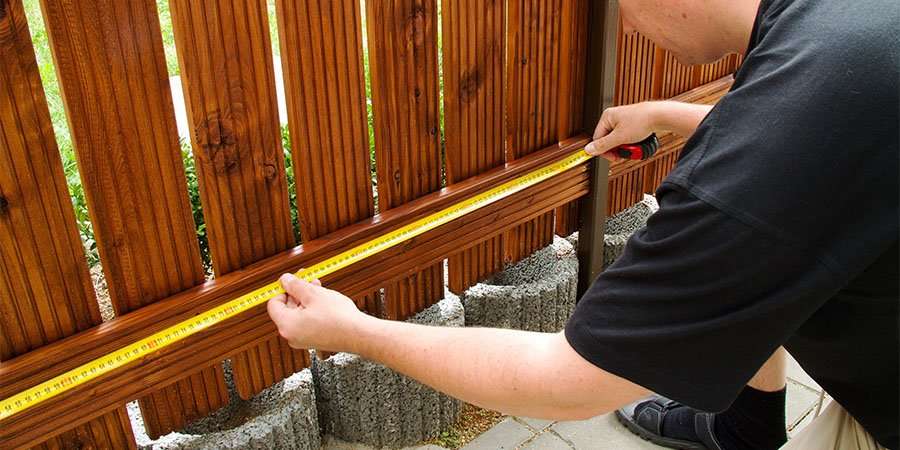All Categories
Featured

When mounting a fencing, choosing the right material is essential to stabilizing capability, aesthetic appeals, and budget. Timber, vinyl, and light weight aluminum are among one of the most generally picked fencing materials, each with its strengths and disadvantages. This guide checks out the pros and disadvantages of these alternatives to assist you make an educated choice.

Wood Fencing. Pros:. All-natural Charm: Timber's ageless appeal can enhance any residential or commercial property with its warm and traditional appearance. Customizable: You can paint, stain, or carve wood to fit your style choices. Economical: Timber fence is at first a lot more economical compared to some various other products. Eco-friendly: As an eco-friendly resource, wood is eco-friendly and typically taken into consideration green. Disadvantages:. Maintenance-Intensive: Normal sealing, paint, or staining is needed to stop damage from weather condition and pests. Prone to Decay: Without proper treatment, timber can rot, warp, or fracture with time. Much shorter Lifespan: Usually, timber fencings last 10-15 years, relying on the kind of wood and maintenance. Timber is a terrific option for those who value visual appeals and are ready to purchase normal maintenance to protect its appearance and durability.
Vinyl Fencing. Pros:. Low Maintenance: Plastic requires very little care-- just periodic cleaning with soap and water. Weather condition Resistant: It doesn't warp, rot, or catch insect damages, making it very resilient in various climates. Longevity: Vinyl fences can last 20-30 years with little to no fixings. Layout Variety: Available in a vast array of structures, shades, and designs, consisting of wood-like looks. Cons:. Greater Preliminary Price: Vinyl fencings are a lot more pricey ahead of time compared to timber. Susceptability to Cold: In very chilly weather condition, vinyl can end up being weak and vulnerable to cracking. Restricted Repair Work Options: Matching replacement panels can be testing if damages happens. Plastic fence is perfect for property owners searching for a lasting, low-maintenance service that offers modern-day flexibility.

Aluminum Fence. Pros:. Rust-Proof: Light weight aluminum stands up to deterioration, making it an exceptional option for humid or damp settings. Resilient: In spite of being light-weight, aluminum is strong and can stand up to rough climate condition. Reduced Maintenance: It needs very little maintenance, typically just occasional cleansing. Long Lifespan: Aluminum fencings can last decades without significant deterioration. Sophisticated Style: Commonly utilized for decorative objectives, light weight aluminum fence adds a streamlined, advanced seek to homes. Cons:. High First Investment: Aluminum fences are among the more expensive alternatives on the marketplace. Much less Personal privacy: The open designs common with aluminum fence don't give much personal privacy. Vulnerable to Damages: While sturdy, light weight aluminum can dent if hit with sufficient pressure. Light weight aluminum is a superb selection for home owners focusing on aesthetic appeals and toughness without calling for much maintenance.
Making Your Choice. When determining between aluminum, wood, or plastic secure fencing, consider your concerns:
Wood fits those that value an all-natural appearance and do not mind placing in maintenance initiative. Vinyl is the very best alternative for those seeking a low-maintenance, weather-resistant remedy. Light weight aluminum uses streamlined design and long-lasting longevity but may lack privacy. By carefully assessing these materials' features, you can pick a fencing that enhances your property while fulfilling your visual and practical requirements.
Latest Posts
Professional Industrial Roofing Solutions in North Platte, Nebraska
Published May 25, 25
2 min read
Find Brake Repair & More: Complete Auto Care Solutions from Montclare Auto Repair
Published May 25, 25
1 min read
Explore WyHy Federal Credit Union – Top Benefits for Your Money Goals
Published May 24, 25
1 min read
More
Latest Posts
Professional Industrial Roofing Solutions in North Platte, Nebraska
Published May 25, 25
2 min read
Find Brake Repair & More: Complete Auto Care Solutions from Montclare Auto Repair
Published May 25, 25
1 min read
Explore WyHy Federal Credit Union – Top Benefits for Your Money Goals
Published May 24, 25
1 min read